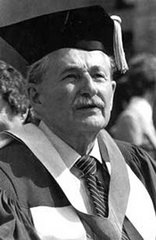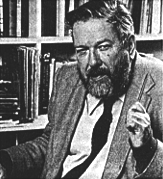Toward a True "Council of the Federation"
It's been over three decades since they first formally proposed the idea at the Victoria Charter meetings, but I suppose it's better late than never.
Founded in 2003, the Council of the Federation is taking an important first step toward being a positive, legitmate national body. For the first time since its inception, COF will have cooperation -- not fed-bashing -- at the top of its agenda as it meets this week in Moncton. Instead of using the annual get-together as a glorified PR exercise, instead of organizing itself as a national lobbying firm, and instead of bickering amongst each other over equalization, the Council is actually promising to unite provinces in pursuit of common goals. Western and Atlantic Premiers have been doing this for decades, working on such issues as harmonization and trade, energy, and the environment. But this year's COF meeting marks the first time this has happened on a national basis.
To be sure, there will be tension and debate. Getting Manitoba and Quebec to agree with Saskatchewan, Newfoundland and Alberta on a national energy strategy will be challenging. (I'm waiting with baited breath to read the communique on that issue.) But at least we are starting to see the markings of true 'cooperative federalism', with Premiers united through common pursuits instead of a common enemy.
Unfortunately, that "enemy" still remains shut out of these discussions. This partly of Ottawa's own doing; Harper has yet to convene a first minister's meeting since assuming office. It is also partly out of the wishes of certain provincial leaders; Williams and Calvert are not too anxious to share the stage with the Prime Minister, and Campbell and McGuinty are wary of sharing the spotlight.
Nonetheless, the continued absence of the federal government in a "Council of the Federation" not only contradicts Harper's promises of "open federalism"; it also contravenes the spirit of the entire COF concept. If the Council is to be any more than a better-funded, renamed Annual Premiers' Conference -- a desire clearly expressed in the Quebec Liberals' original bluepirint in 2002 and the 1971 discussions in Victoria -- the next step must be to involve the federal government as an equal partner.*
This week's meeting in Moncton is an excellent start. Let's hope officials in both Ottawa and the provincial capitals build on this momentum.
------------------------
*Ottawa should not be the chair or co-chair of these meetings, as we've seen in various First Minsters' Meetings and Conferences; nor should it be an invited 'guest'. All fourteen of Canada's official governments should sit as equal members of a reformed Council. (Looking further down the road, Aboriginal governments, big city mayors, and the Federation of Municipalities should be granted access as guests.) The Council, like the APC before it, should never be a formal 'voting' body; input from all members should continue to be used to forge a consensus on issues of national importance.





No comments:
Post a Comment